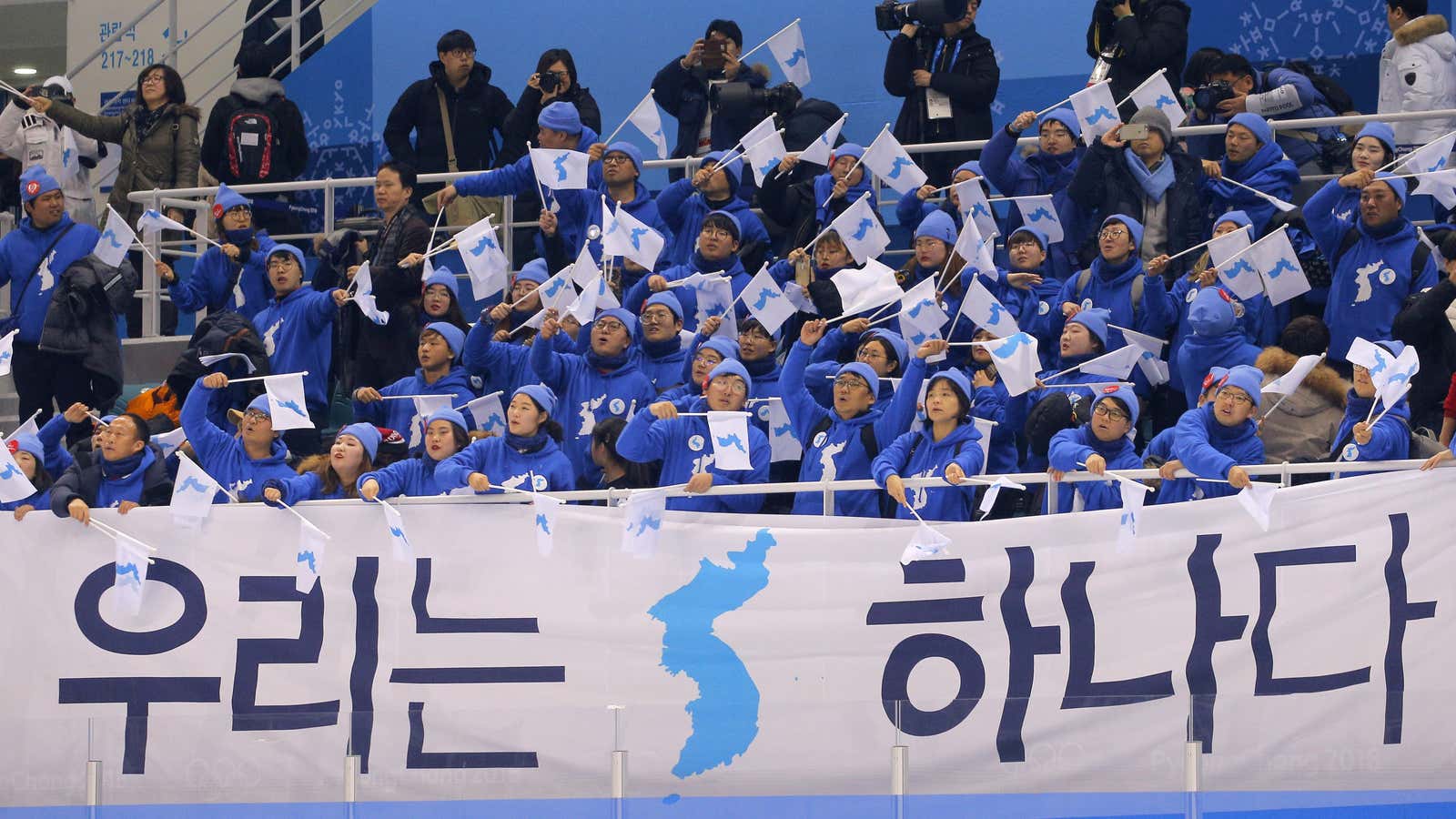Mixed doubles curling is a new event at this year’s winter Olympics in South Korea. Perhaps the most interesting thing to be said for the sport is that players wear microphones. That means viewers can hear them discussing strategy and shouting at each other in their native languages. Because there are no referees, viewers can also hear the two teams discuss scores and settle disputes—usually in English.
In this weekend’s match between China and Norway, no translators were needed for discussions between teams. Although the two countries could not be more different linguistically, they were able to conduct business in the current lingua franca.
Conversations in broken English are happening all over Pyeongchang this week, no doubt. And even though the Olympics are an athletic competition, athletes who don’t speak English are likely to be disadvantaged in the rink and on the slopes.
North Koreans’ English is so bad, for example, that they’re reportedly struggling to communicate even with teammates from South Korea, just across the demilitarized zone. This year, the two Koreas made a surprising bit of progress in sports diplomacy by agreeing to field a joint women’s hockey team at the Olympics. But the South Korean players are accustomed to using a host of hockey terms borrowed from English.
In South Korea, they call a pass a “pass,” in English. In the North, they use the Korean term yeol lak, meaning “communication,” according to VOA. South Korean players use a ton of other English words, too, like “box out,” “wing player,” and “shoot.” In each case, the North has translated these into Korean, and the players from there are a bit lost.
The unified team also did as many countries do and went abroad to find a top-class coach. In this case that is Sarah Murray, a Canadian, who gets her points across in English. The South Koreans’ relative familiarity with her language make it easier for them to learn from this global expert.
Lots of countries try to limit the influx of loanwords from other languages, worrying that it will dilute the purity of the original. The Académie française has long sought to prevent too many Anglicisms from entering French. English finds a way to circumvent these restrictions anyway, spreading through popular culture and the internet, or through specific professional vocabularies like management-speak or scientific terminology. But not in North Korea, where there is no Hollywood or internet.
The country’s insistence on juche, or “self-reliance,” has led it to be excluded from nearly every global trend of the past several decades: Facebook, trade liberalization, the Transformers franchise. And as a result, the spread of English.
North Korea is an extreme example, but it reveals a new linguistic reality. Countries now need to treat English skills among citizens the way they do math or literacy. It is a basic requirement of operating in global society, in any endeavor.
Defectors from North Korea to the south report having major difficulties integrating in the south due to their poor English skills. Yes, English is necessary even if you move to a country that shares your native, non-English language. More broadly, English proficiency is correlated with all kinds of positive metrics, like development indicators and service exports.
There are a lot of countries other than North Korea that could improve in English. Of the 80 countries surveyed in last year’s English Proficiency Index, organized by the company Education First, over half came out with scores indicating “low proficiency” or “very low proficiency.” South Korea managed to make it to “moderate.” North Korea is not on the list of course, but it would likely be even lower than the worst performer, Laos.
Language education takes time. Between 2016 and 2017, average English proficiency index scores across the world barely improved. Only Panama, Saudi Arabia, and Thailand showed “significant gains,” according to the report on proficiency. Whether their language gains will be reflected in Olympic medal counts remains to be seen.
